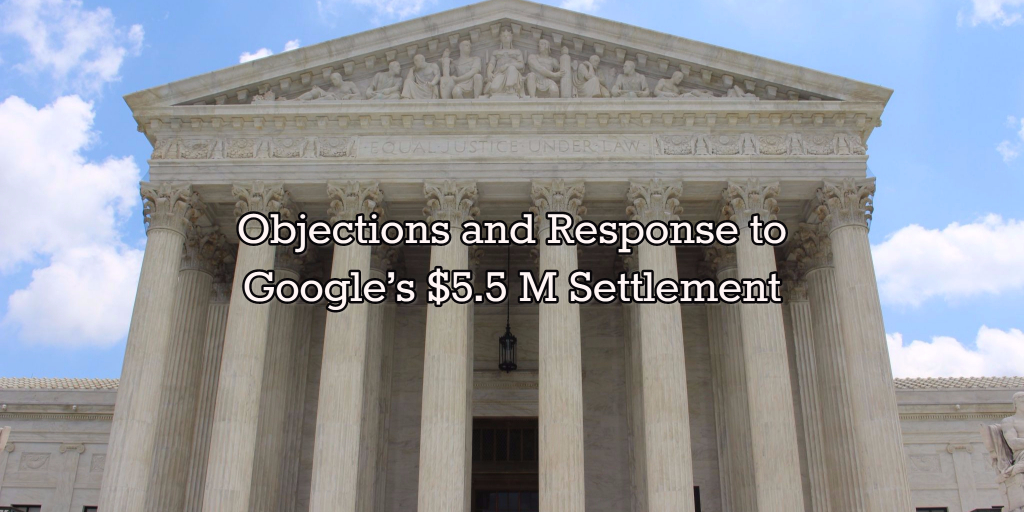The case
In August 2016, the United States District Court for the District of Delaware directed Google Inc. to pay a total of $ 5.5 million in its determination of a class action lawsuit. In the lawsuit, the class, the group of people who had suffered similar injuries, had accused Google of interfering with the privacy settings of Safari browser, a software application owned by Apple. By making it possible for advertisers to use the browsers of users as platforms for setting up third party cookies, the class argued that Google violated federal privacy laws.
The objections
Theodore H. Frank, an objector and class member, is represented by the Competitive Enterprise Institute’s Center for Class Action Fairness (CEI). Although Google had agreed to the settlement, CEI is contending the final approval of this settlement.
According to CEI, the allegations of privacy infringement against the defendant amount too much more than the value offered under the settlement. CEI claims that the statutory damages amount to billions of dollars. The institute further argues that the fees and expenses charged by class counsel will translate to almost half of the total settlement value. As such CEI has termed the fees as excessive and lacking justification.
Moreover, CEI has pointed out that the net settlement will be paid to cy pres, a third party, a factor that will deny the real class members the chance to benefit from the money. The institute alleges that cy pres enjoy a preexisting relationship with the defendant or counsel representing the class. With this, CEI claims that this may give rise to a serious conflict of interest.
Proposals from CEI
CEI has suggested that the benefits be paid directly to class members, proposing that class certification be discarded if direct distribution will not be possible.
The response
In dismissing the objections raised by CEI, class counsel claims that Frank and CEI are serial objectors and that Frank is just one objector out of the many class members. Class counsel goes on to say that Google has also paid the statutory damages through the fines that the government has exacted for violation of the law. They state that the lawsuits were protracted and the court competently decided that the class members be compensated indirectly since direct distributions would not make economic sense. Lastly, the Council emphasizes that the fees charged are reasonable and justifiable.
The final hearing for this case has been set for January 11, 2017.


